Eliminating food deserts by meeting people where they are
Challenge
How might we best utilize our available assets to design a sustainable, holistic experience within our target communities to address food insecurity in a dignified and COVID-19-safe manner?
Context
People living in Austin’s Eastern Crescent have long faced limited access to affordable food, healthcare, and other essential services due to historical policies that shaped neighborhood development in the early 20th century. As a result, citizens in this community experience lower life expectancies, higher age-adjusted mortality rates, and fewer hospitals and clinics in a nearby radius.
A team of five learners in the M.A. in Design focused on Health program collaborated on space design, service design, and systems design to co-create an entirely new experience for the community members living in the Eastern Crescent. Live Well/Vive Bien, an initiative piloted by Equidad ATX, is the vision for a holistic mobile ecosystem that serves the community with the goal of meeting unmet social determinants of health—particularly the issue of food insecurity—for historically underserved populations.
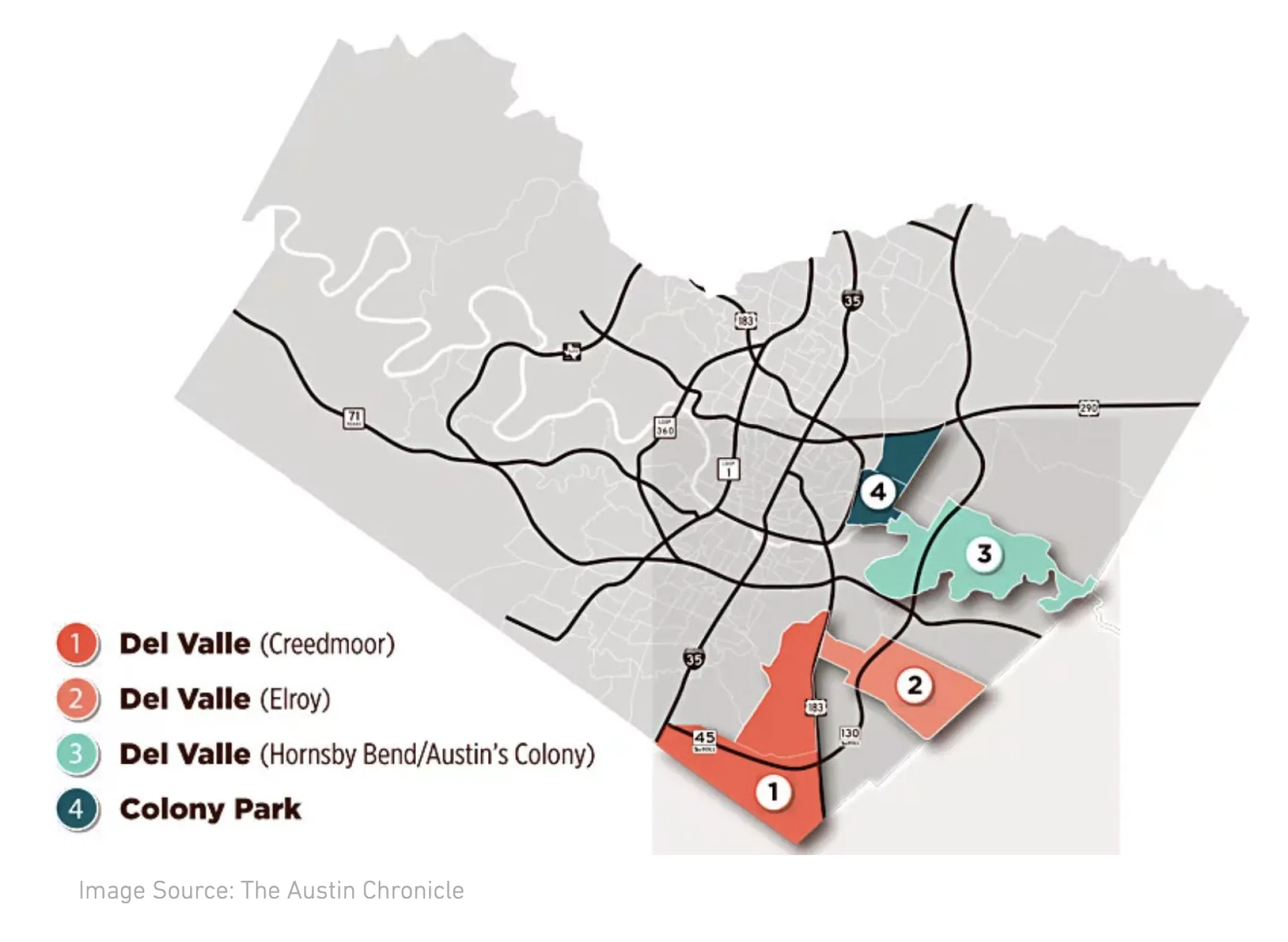
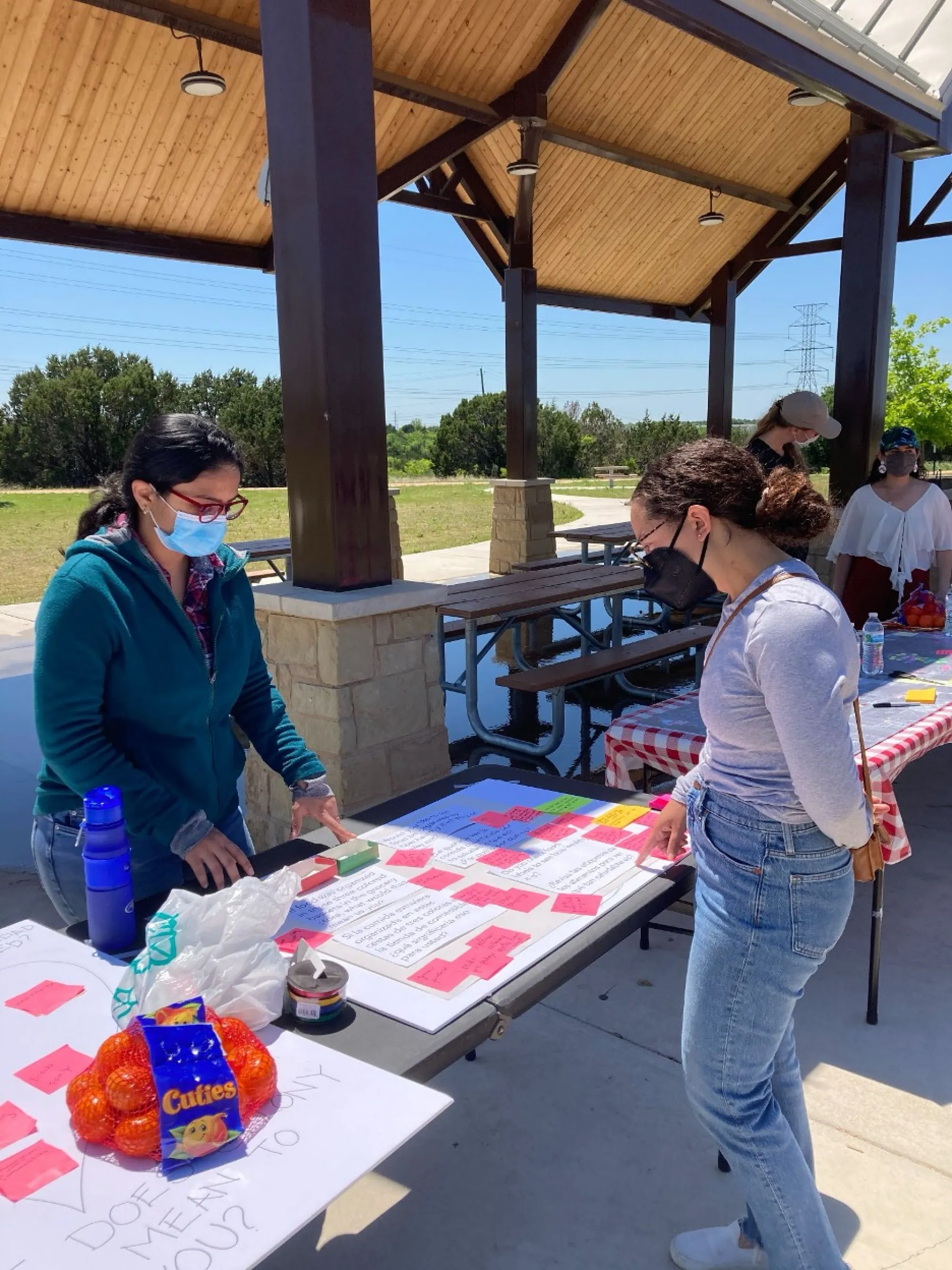
Approach
Utilize co-creation and human-centered design methods to understand the community, assess their needs, and then create an innovative mobile grocery store.
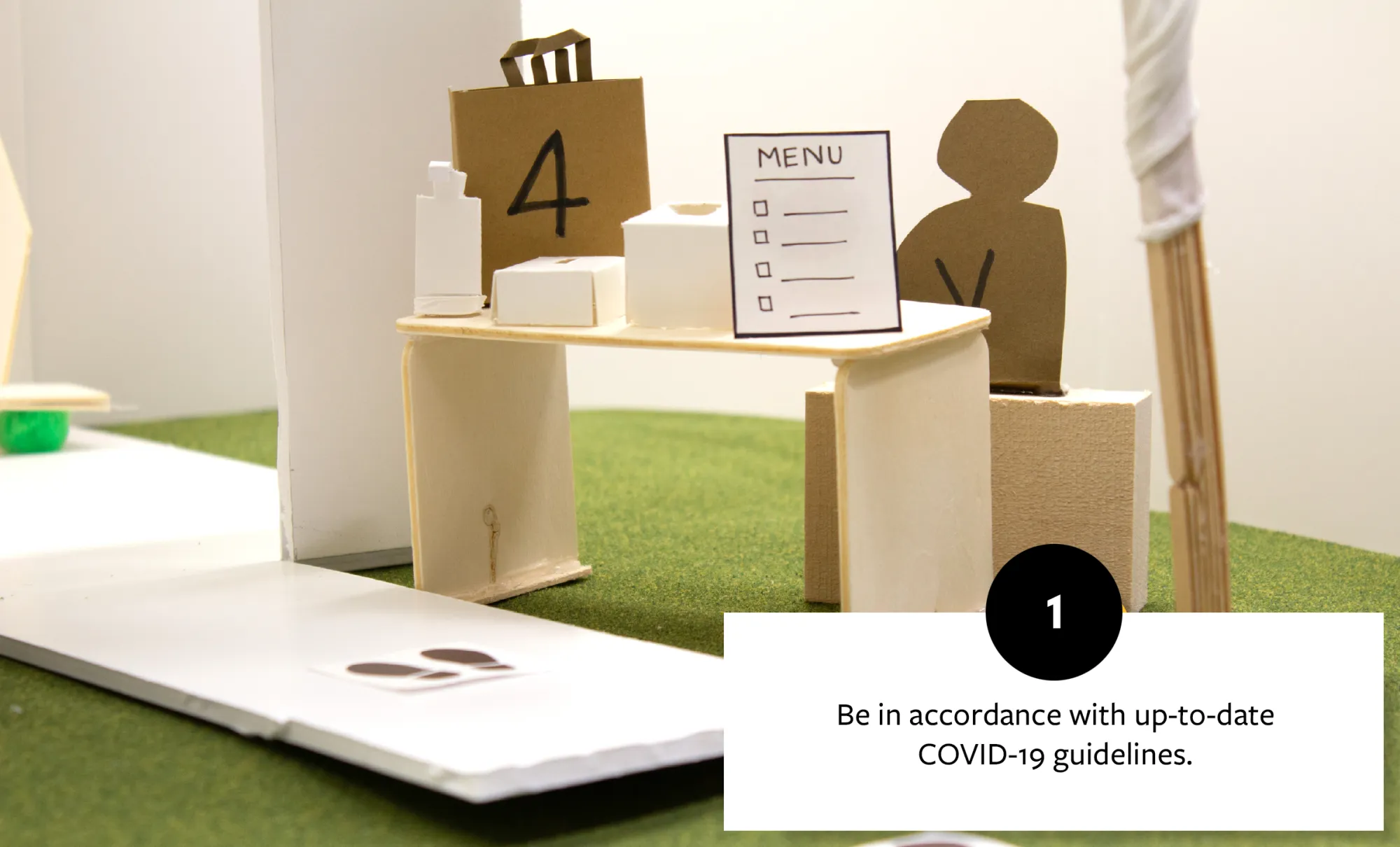
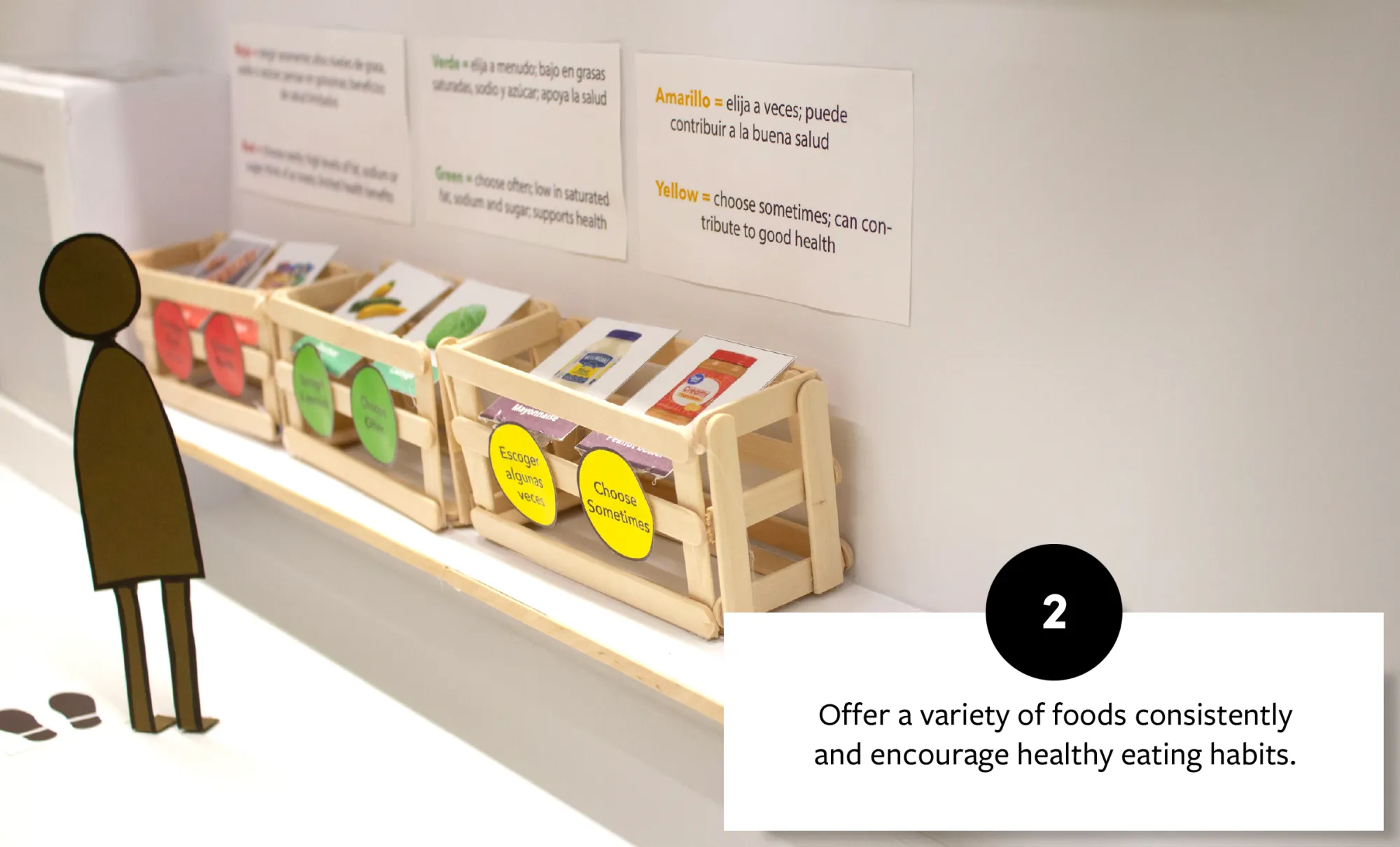
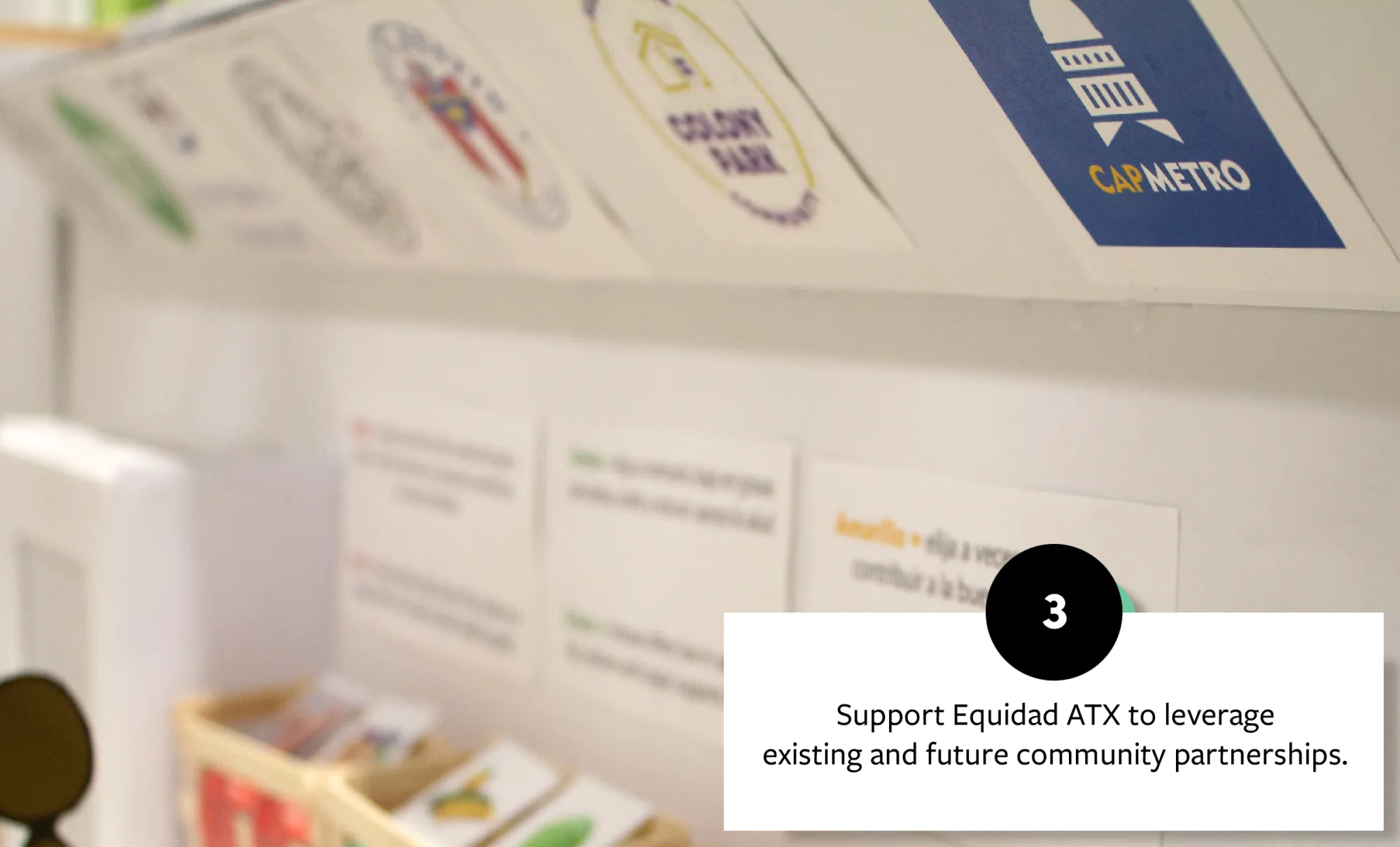
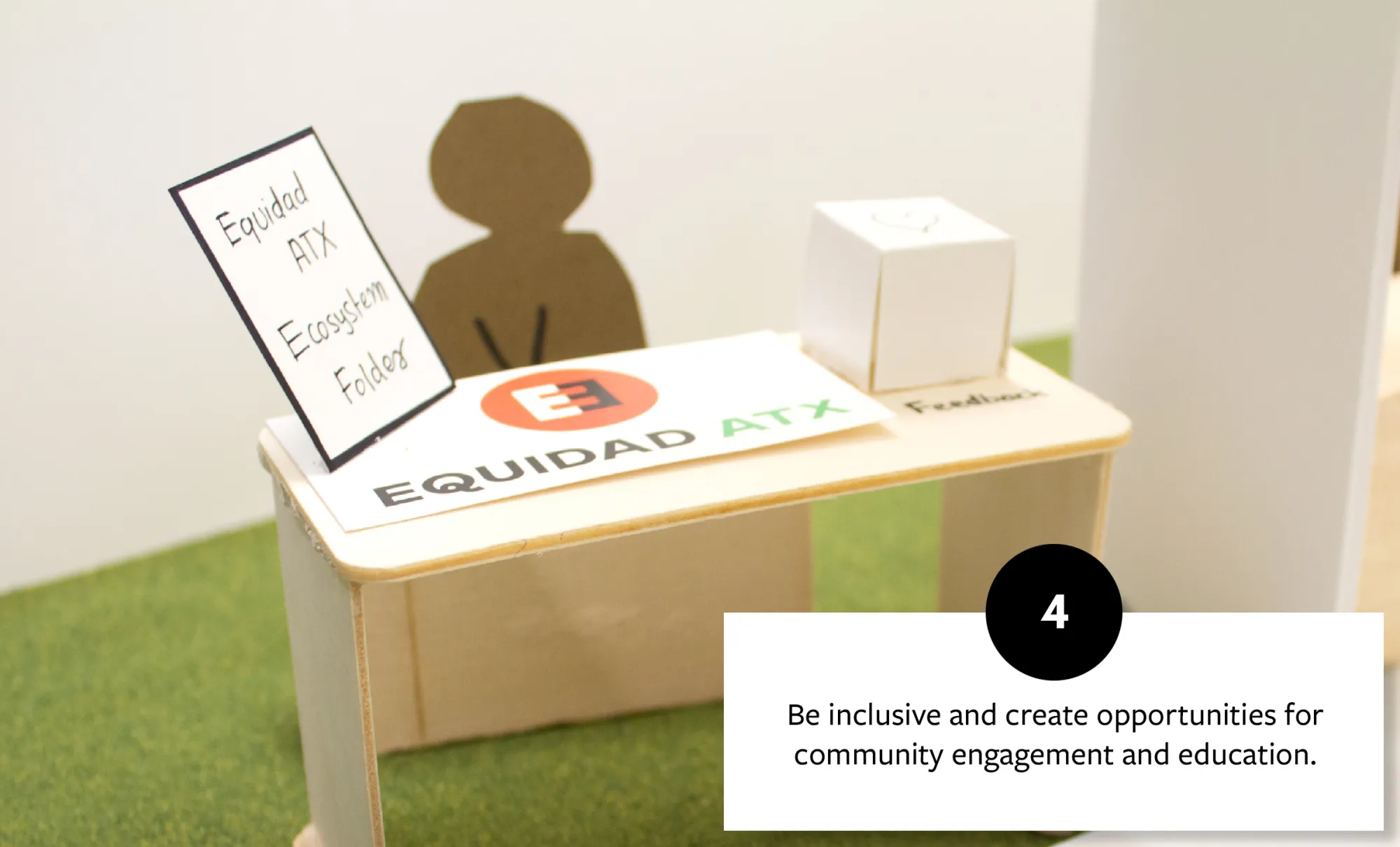
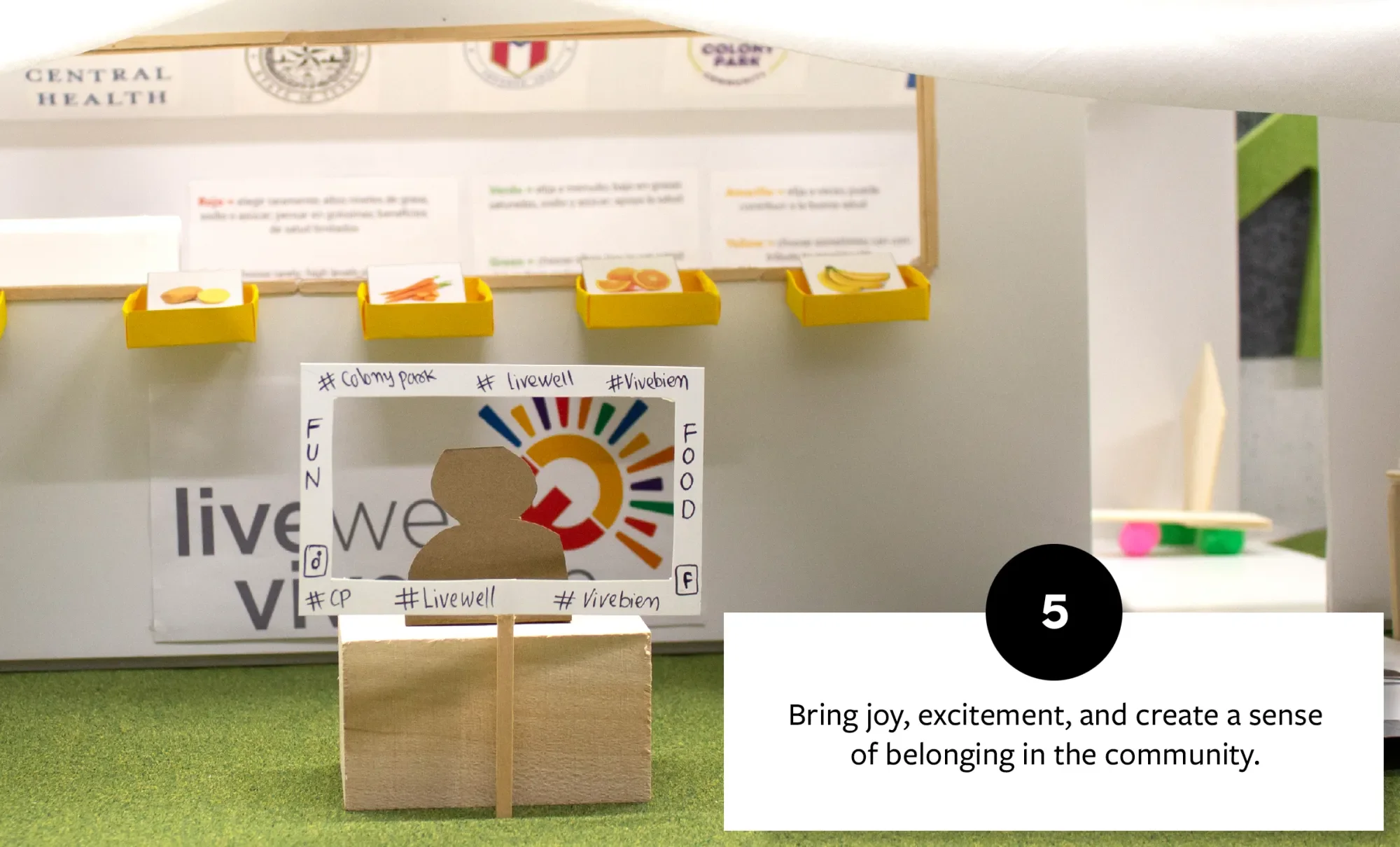
Insights
- In a community that has seen many organizations come and go without lasting change, consistency in both visibility and physical presence is essential in building trust.
- Many residents took action to help their community in response to years of unmet expectations and a lack of follow-through by outside organizations. Unfortunately, they often do not have the organizational power to make lasting change in their neighborhoods.
- When determining community needs, it is tempting to think of an area of the Eastern Crescent as just one unit. However, it is an incredibly diverse area, and its needs reflect this diversity.
- There is a substantial variety of food among the communities; for some, it is a means of health and sustenance, while for others, it defines culture and identity.
- Due to the fragmented and disjointed nature of the many community organizations within the Eastern Crescent, there’s an opportunity for Equidad to serve as the coordinator among an array of scattered partnerships.
Outcome
Improved access to health services.
In a little over three months, the team of students delivered positive health experiences to the community through a retrofitted, decommissioned CapMetro bus that brings food where it’s needed most.
The team recognized that their impact directly correlated with their ability to build trust within the community. With that in mind, the goal was to design with the community, not for them. This meant showing up for the community: conducting regular engagement events, canvassing neighborhoods, and plugging into online communities to better establish Live Well/Vive Bien as a lasting aspect of the community.
Recommendations
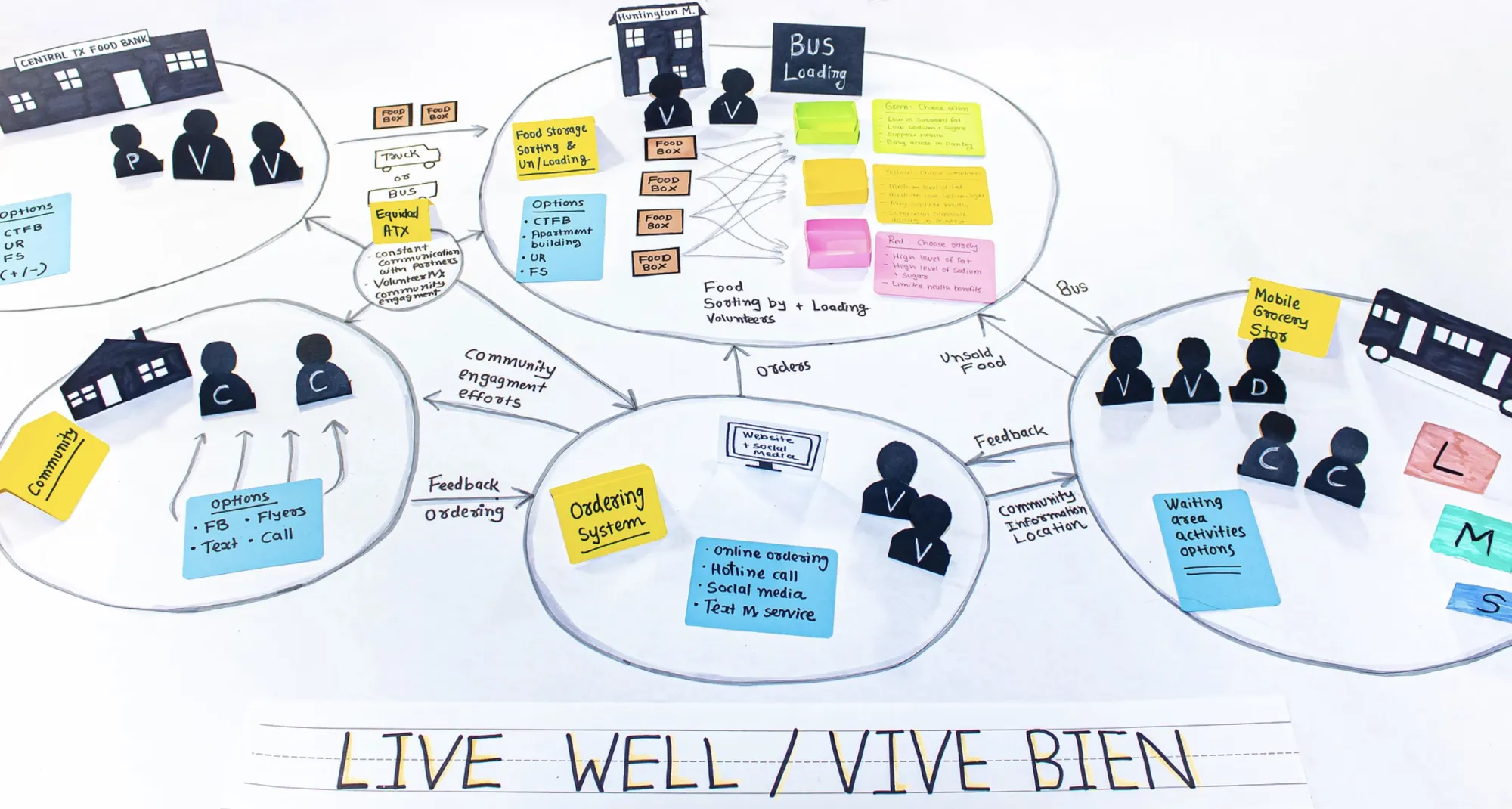
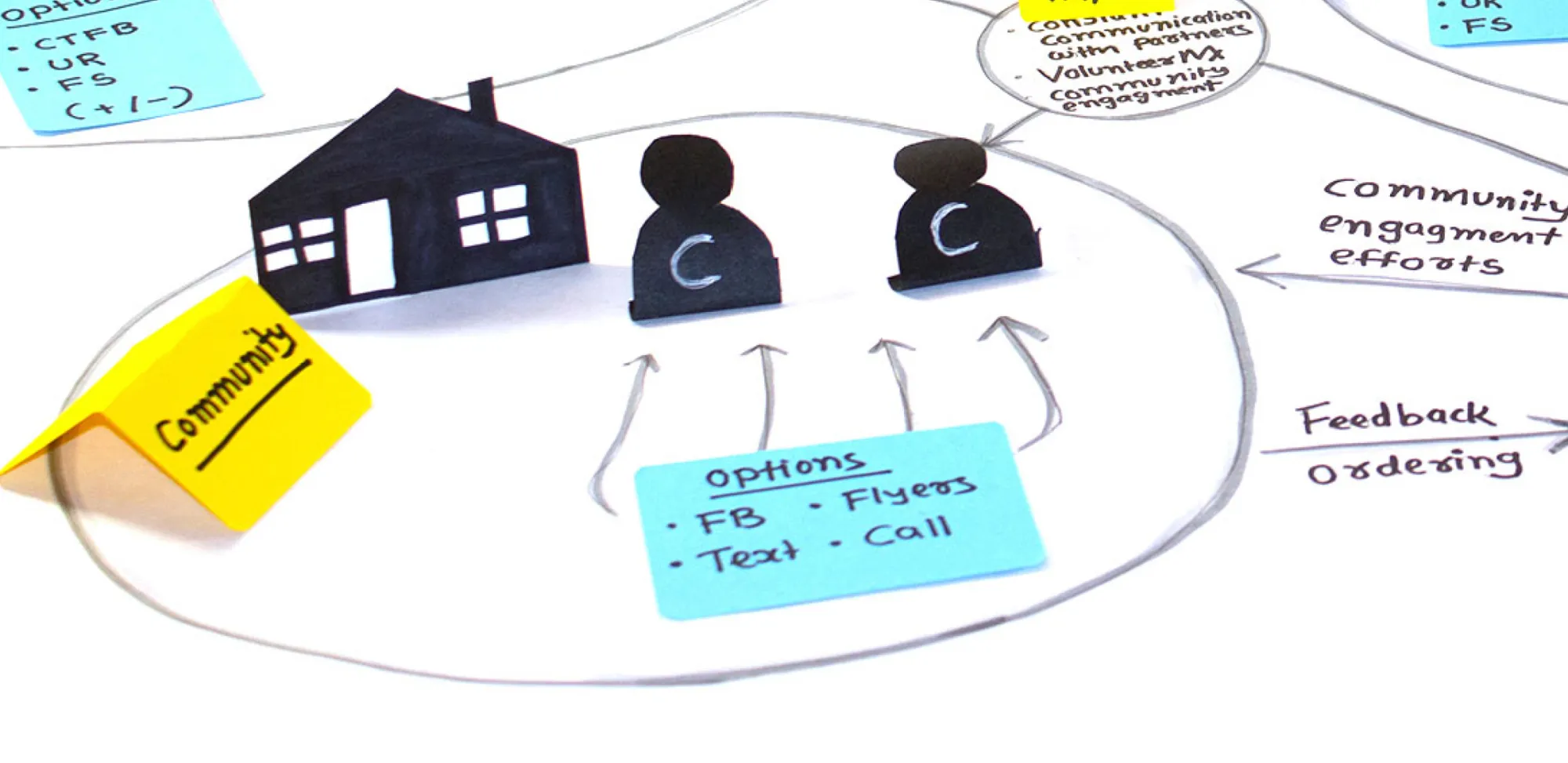
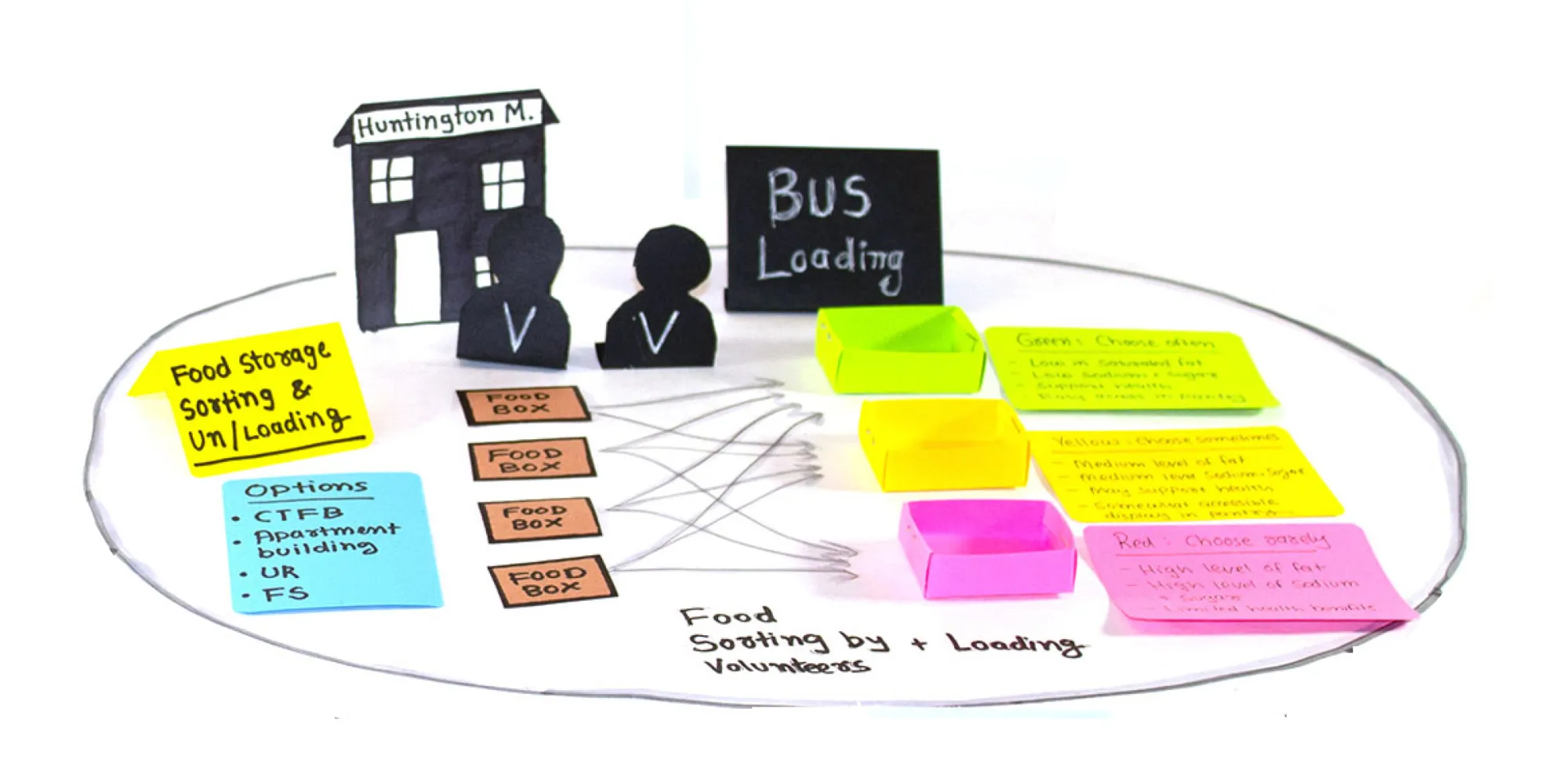
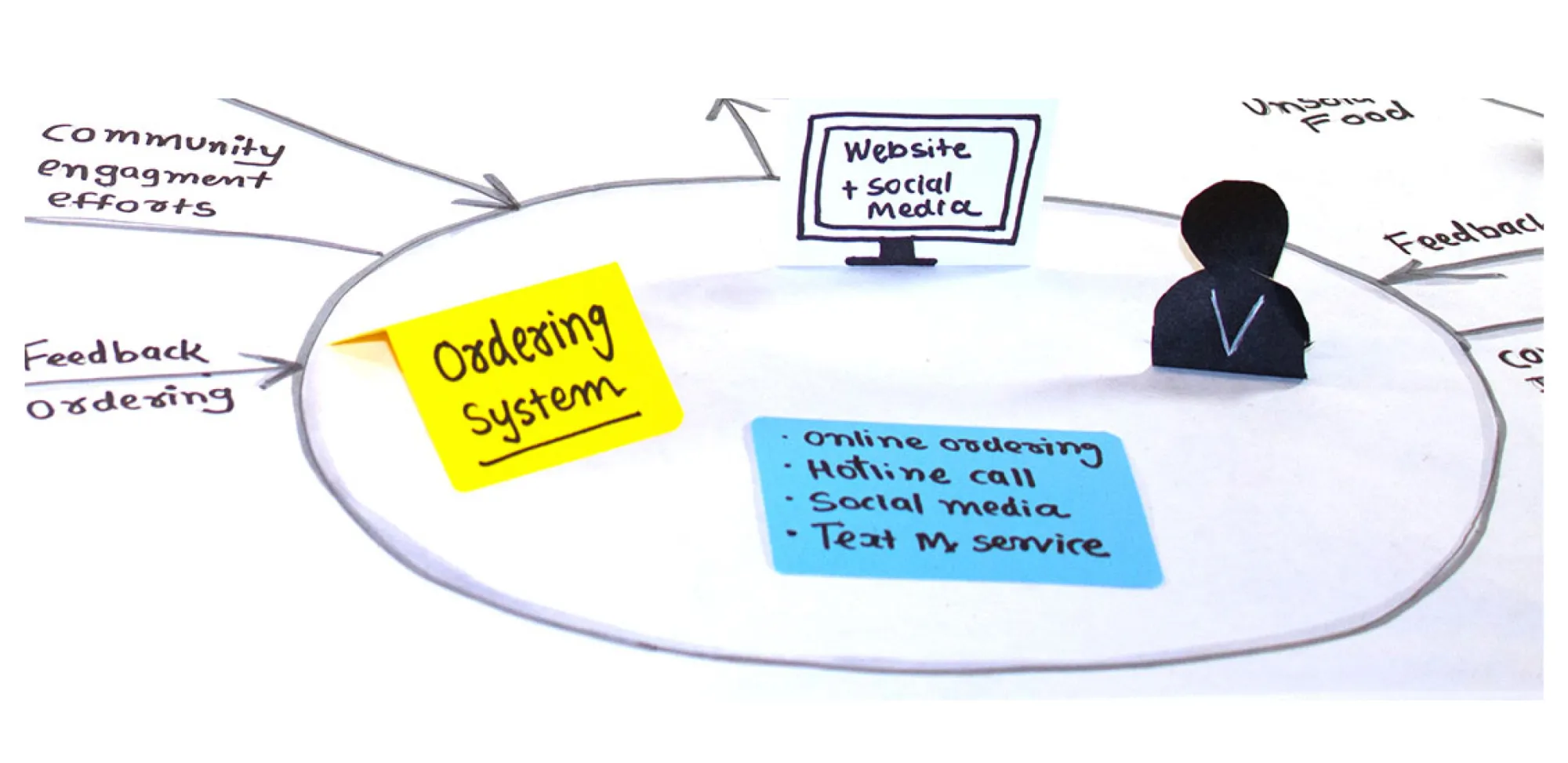
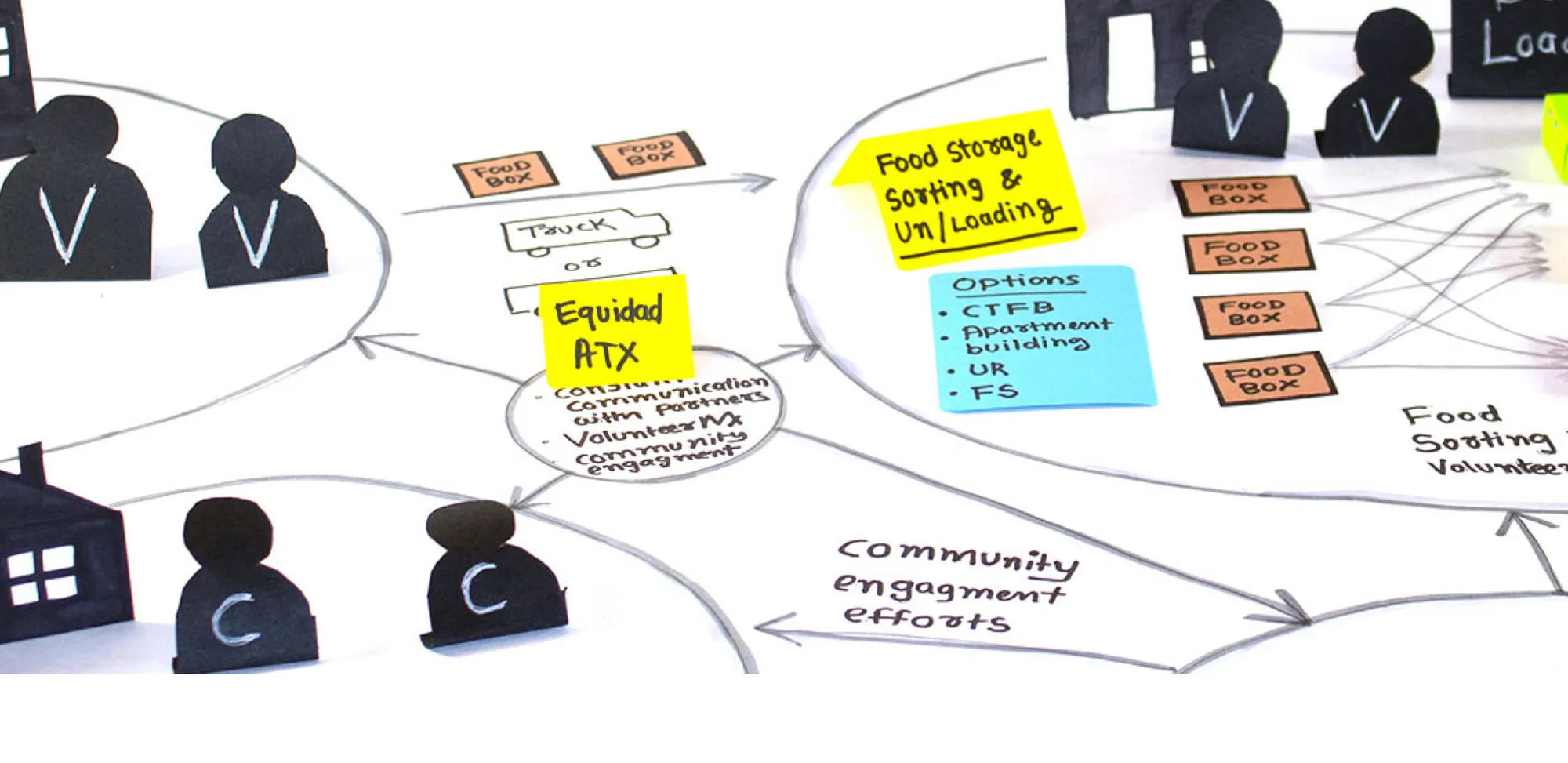
Learn More
Find out more about Equidad ATX’s Live Well/Vive Bien initiative.
Design Team
Nirali Oza
Alok Doshi
Noella Kiza
Brittanie Wilczak
Zaara Qasim
Project Summary
In Austin's Eastern Crescent, historic racial segregation has limited access to essential services, creating food deserts and health disparities. The Live Well/Vive Bien initiative, in partnership with Equidad ATX, launched a mobile grocery store to deliver healthy food directly to underserved communities. This project emphasizes trust-building, cultural sensitivity, and collaboration with local organizations to provide sustainable, dignified support for food security.
Project Contributors
Equidad ATX, Live Well/Vive Bien

